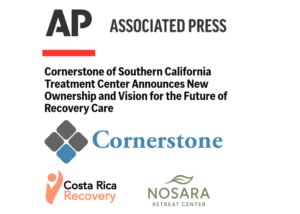Finishing drug treatment is an exciting accomplishment, but your work in recovery is never done! It’s time to live your life on its terms and meet the challenges you face. After all, one of the reasons you went away from home was to get away from everyday stress and triggers. When you get home, you’ll need to manage those while staying sober. Managing your recovery requires commitment, flexibility, and willingness. You’ll need to rely on the tools you’ve learned during treatment to solidify new behaviors.
Here are some ways to stay on track and continue your journey when you’re home.
Create a Structured Daily Routine
One of the biggest challenges after treatment is adjusting to a new lifestyle without drugs or alcohol. Structure is crucial for maintaining stability and reducing the risk of relapse. Plan your days or keep a calendar that schedules your productive activities such as work, school, or aftercare, along with self-care and goal-oriented tasks.
It helps to:
- Have a consistent waking time and bedtime every day. Planning at least 8 hours of sleep into your day can help your body continue to recover from addiction and keep stress levels low.
- Focus on staying healthy in body and mind. This means getting exercise, eating healthy foods and meals, and spending time relaxing or recuperating from a long day.
- Schedule time for something you love! Many people in 12-step meetings share interests in common, such as surfing or meditating. Make sure you take time to do things you enjoy!
- Attend recovery meetings and therapy sessions. Completing treatment doesn’t mean graduating from recovery. Instead, it means it’s time to get serious
Avoiding Triggers in Recovery
Triggers—people, places, and situations that remind you of past substance use—are always a concern because they can cause people to relapse. In recovery, identifying and avoiding these triggers is critical.
Maybe one day your old friends will find recovery. But until then, it’s not safe or healthy to spend time with them and dredge up the past. Distance yourself from friends or acquaintances who still use drugs or alcohol. In recovery, you can develop new relationships with other people who have similar goals.
You’ll also want to have a plan for what you’ll do if you feel triggered or have an urgent desire to drink or pick up a drug. Will you call or text your sponsor? Go find a friend in recovery and spend the afternoon with them or will you get yourself to a support group meeting?
All of these are good ideas that will keep you from being alone with your temptation.
Making 12-Step Meetings a Priority
Attending a 12-step meeting daily in early recovery is one of the most effective relapse prevention strategies. In the longer term, it’s also important. People who attend 12-step meetings regularly are much more likely to stay sober for five years or more. Programs like Alcoholics Anonymous and Narcotics Anonymous are where you can connect with others who understand your struggles.
Try to make 30 meetings in 30 days or even 90 meetings in 90 days when you first come home. This helps reinforce your recovery mindset and helps you set a sort of rhythm to your life in sobriety. You’ll also become more familiar with the local recovery community and begin to make friends. Hopefully, you’ll find a 12-step sponsor and a favorite meeting that you go to, no matter what, every week.
If you ever feel the urge to drink or use drugs, go to a meeting that same evening. You’ll find you are always welcome.
Building a Strong Support System
Recovery is not something that happens in a vacuum. Surrounding yourself with supportive people who understand your journey can make all the difference.
- Stay connected with sober friends and family members
- Get phone numbers from people and connect on social media
- Find a sponsor or mentor in a 12-step program
- Join a support group or sober community
- Communicate regularly with a therapist or counselor
- Go to recovery-centered events and outings like dances or holiday events
Local AA clubhouses and meetings usually will have announcements about events and other outings. Get involved and become a part of the local recovery community.
When in Doubt, Reach Out
Recovery is a lifelong journey, and setbacks can happen. If you ever feel like you’re struggling, don’t hesitate to ask for help. Whether it’s calling your sponsor, attending an extra meeting, or reaching out to a trusted friend or therapist, getting support early can prevent a relapse.
Returning home from treatment can be overwhelming, but with the right mindset, support system, and daily commitment to recovery, you can build a new life free from substance use.
Stay dedicated, go to meetings, and remember—you‘re never alone in this journey.











